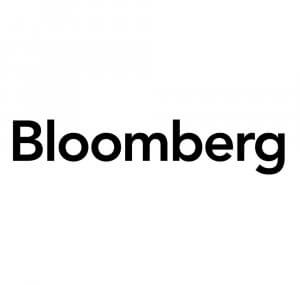FINRA fines M1 Finance $850,000 for misleading ‘finfluencer’ activities
“As investors increasingly use social media to inform their financial decisions, FINRA’s rules on communicating with the public are especially critical. FINRA will continue to consider whether firms are using practices and maintaining supervisory systems that are reasonably designed to address the risks related to social media influencer programs.”

The Financial Industry Regulatory Authority (FINRA) has imposed a fine of $850,000 on M1 Finance LLC for violations concerning its use of a social media influencer program.
Marking FINRA’s first disciplinary action specifically related to a firm’s oversight of social media influencers, the fine was levied due to influencers making posts on behalf of M1 Finance that were found to be unfair, unbalanced, or contained claims that were exaggerated, unwarranted, promissory, or misleading.
M1 Finance outsourced promotional efforts to 1,700 ‘fiinfluencers’
The investigation revealed that from January 2020 to April 2023, M1 Finance compensated social media influencers to produce content endorsing the firm and encouraged the use of a specific hyperlink directing potential customers to its website for account opening and funding. Over 39,400 new accounts were attributed to the efforts of approximately 1,700 influencers. However, the firm failed to ensure that these promotional activities were fair, balanced, and compliant with FINRA rules, notably Rules 2210 (Communications with the Public) and 2010 (Standards of Commercial Honor and Principles of Trade).
One highlighted infraction involved misleading representations about M1 Finance’s margin lending program, suggesting more lenient terms than were actually available. This, among other violations, pointed to a lack of adequate review and approval of influencer content, as well as a failure to maintain a suitable supervisory system for overseeing such communications, violating additional FINRA rules and regulations.
In response to the enforcement action, M1 Finance has agreed to the findings and consented to implement a supervisory system and written procedures designed to ensure compliance with FINRA Rule 2210, without admitting or denying the charges. This case serves as a reminder of the regulatory expectations for firms using social media and influencer marketing strategies in the financial services industry.
Bill St. Louis, Executive Vice President and Head of Enforcement, FINRA, said: “As investors increasingly use social media to inform their financial decisions, FINRA’s rules on communicating with the public are especially critical. FINRA will continue to consider whether firms are using practices and maintaining supervisory systems that are reasonably designed to address the risks related to social media influencer programs.”
‘Finfluencers’: ASIC sued “Black Wolf Pit” into bankruptcy
The Australian Securities and Investments Commission (ASIC) recently bankrupted Tyson Robert Scholz, the figure behind “Black Wolf Pit”, as part of a crackdown on so-called ‘finfluencers’ and individuals providing unlicensed financial services.
ASIC’s move culminates a series of legal challenges initiated by the corporate regulator against Scholz in 2021, culminating with the Federal Court issuing sequestration orders against him for failing to cover court costs of $456,293.
Scholz is known for promoting trading courses and stock tips under the moniker ‘ASX Wolf’ to his 118,000+ social media followers. He was found to have operated a financial services business from March 2020 to November 2021 without holding an Australian Financial Services License (AFSL).
The Federal Court had previously imposed permanent injunctions on Scholz in April 2023, barring him from conducting any financial services business in Australia and mandating him to pay the legal costs incurred. Scholz’s inability to fulfill this financial obligation led ASIC to take further legal steps, including serving a Bankruptcy Notice in July, followed by a Creditors Petition, resulting in the recent sequestration orders.
Scholz’s business model involved charging subscribers for membership fees ranging from $500 to $1,500, providing them with various levels of trading courses, stock tips, and access to a private chat site via Discord. Despite describing himself as a global equity trader with over a decade of experience, Scholz’s operations without an AFSL have now led to legal and financial repercussions.
ASIC issued many public statements advising firms to be cautious when engaging so-called “finfluencers” and conduct serious due diligence on any prospective partners. It says those promoters must be licensed to give financial advice or are authorised representatives of advisers. The same rules apply to influencers who earn affiliate commissions for referring their pages’ followers to online brokers, which also requires a license to give such advice.
An industry survey revealed that 33% of 18 to 21-year-olds use social media sites to get financial advice from influencers. In comparison, only three percent of people under the age of 25 have used paid financial advice to keep them in the green. Other findings also showed that two thirds of people in the same age bracket changed their financial behavior because of a celeb.
TikTok and other social media influencers, however, do not have the necessary accreditation or qualifications to offer these services, though they promise very lucrative and sometimes guaranteed returns. They also need to meet certain educational standards and manage conflicts of interest, amongst other requirements.









